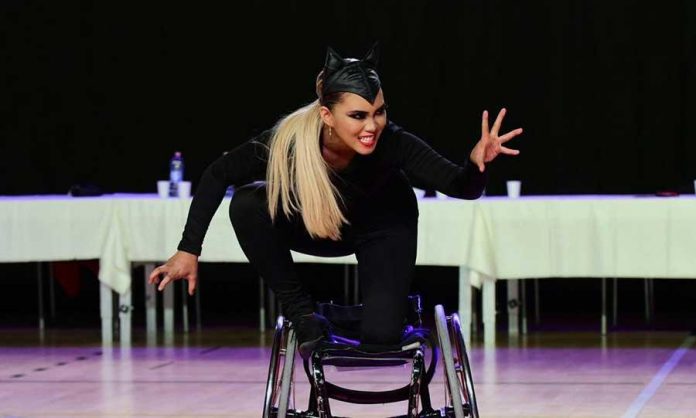The Philippine Para Dance Sports delegation is in an upbeat mode ahead of the World Para Dance Sport Championships, set for November 26-28 in Ulsan, South Korea.
“We still have one month to prepare and we will do our best in training,” said head coach Genice Bong Marquez during the online Philippine Sportswriters Association Forum on Tuesday.
As many as 40 countries will compete in the world championships, including representatives from favorites Russia, Ukraine, and the United States.
But the Philippine team expects to make a splash, especially after their superb performance in the recent 2021 Para Dance Sport Polish Open in Łomianki last October 9-10.
The Philippines brought home seven gold, four silver, and eight bronze medals from the Poland meet, which served as the final qualifier for the world championships. A total of 16 countries competed in the event.
Evelyn de Asis was the breakout star for Team Philippines, winning four gold medals in the women’s single freestyle 2, single conventional 2, duo freestyle 2 with partner Julius Obrero, and junior competition.
The other gold medalists were Obrero (combi Latin class 2 and freestyle combi class 2 with partner Rhea Marquez) and the pair of Jhona Pena and Joey Maglasang (duo standard class 2).
Winning silver medals were: De Asis and Shaquile Hanze Basan, Christian Apolinario, Jhistine Glyde Baguio, Filemon Baguio II, Obero, and Pena. The bronze medalists were Anne Charlaine Santos with four, Jed Villaruel, Christian Apolinario, and Joey Maglasang.
The medalists last week paid a courtesy call on the Philippine Embassy in Warsaw, where they were congratulated by Philippine Ambassador to Poland Leah Basinang-Ruiz.
All of the medalists from the Poland tilt will compete in South Korea next month, according to Marquez.
Obero and Rhea Marquez also graced the forum, saying they are working very hard in bubble training in Novaliches to make sure the Philippines is represented well in Ulsan.
“We train from 6 a.m. to 8 p.m. with solo practices in between and we found that very effective,” said Marquez.
“Bubble training was difficult at the start but we adjusted well to it,” added Obero, a prosthetics technician at UERM.







